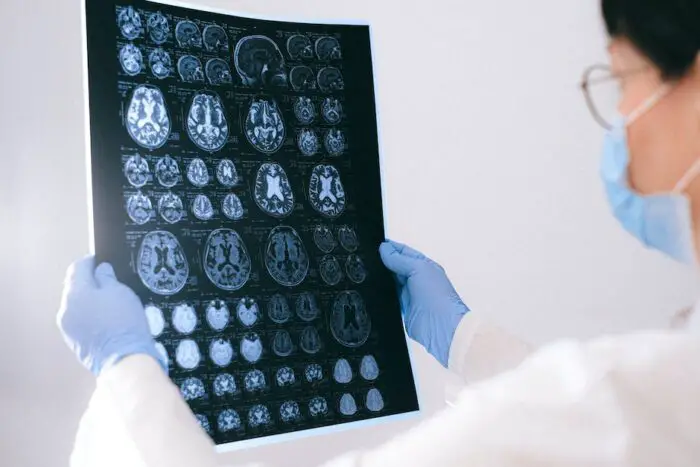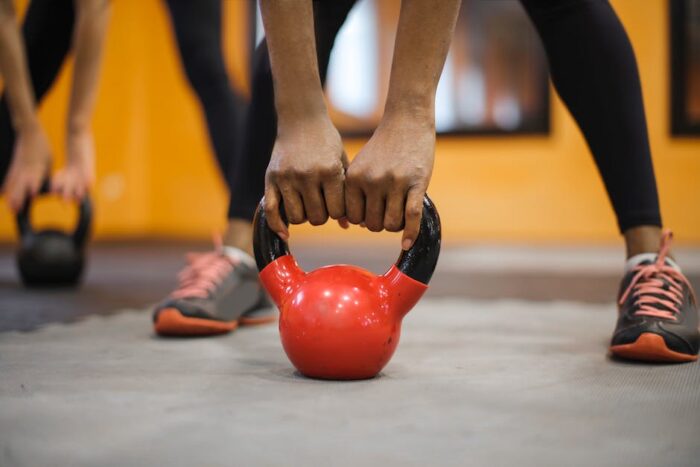Exercise and its Impact on IBD (Inflammatory Bowel Disease) is something that many with this condition might want to look into. Of course, even if we are not sick STILL exercise is always going to be beneficial for our health and wellness. This is a fundamental part of living a healthy lifestyle BUT for those with IBD especially, this is very important for managing this condition.
On this note, the relationship between Exercise and IBD – why should this take precedence over other things that can be done such as a tailored diet and lifestyle changes such as quitting smoking?
Well, In truth they are all equally Important. However, integrating physical activity strategically into one’s lifestyle can have tangible benefits on IBD’s symptoms, influencing disease activity, inflammation, stress levels and general health.
Indeed, what regular exercise can do for IBD is quite Incredible and it is this we shall look to explore further in today’s blog post…
Exercise and its Impact on IBD: How This Can Help
Table of Contents
Toggle
Understanding IBD
Inflammatory Bowel Disease (IBD) encompasses a grouping of chronic disorders that cause Inflammation or swelling in the digestive tract, disturbing the normal functioning of the digestive system. The primary types of IBD are Crohn’s disease and Ulcerative Colitis. These conditions can cause distressing symptoms and significantly impact quality of life. The common symptoms include diarrhoea, fatigue, abdominal pain, weight loss, and blood in stools.
Crohn’s Disease vs Ulcerative Colitis
While both Crohn’s Disease and Ulcerative Colitis contribute to the umbrella of IBD, each manifest differently. Crohn’s disease, named after Dr Burril B. Crohn who first identified the disease, is characterised by inflammation anywhere in the digestive tract from the mouth to the anus.
However, it (Crohn’s Disease) predominantly affects the lower part of the small intestine.
Ulcerative colitis, on the other hand, only affects the large intestine (colon) and the rectum. It causes sores or ulcers in the inner lining of the colon and rectum.
Current Treatment Options for IBD
Treatment for IBD can vary greatly, as it is dependent on the type of IBD, severity of symptoms, and the individual’s overall health. Frequently, medication is employed to alleviate symptoms by reducing inflammation in the digestive tract.
Other possible treatments can range from dietary changes, such as adopting a low residue diet to slow bowel movements, to surgery in more severe instances.
As the condition is chronic and residual, treatment seeks to achieve a long-term remission and maintain the patient’s quality of life.
Exercise and IBD
Exercise is commonly overlooked when it comes to managing IBD, but it can play a vital role in managing symptoms, improving mood, and aiding overall wellbeing. Light to moderate intensity exercise can aid digestion, reduce stress levels, improve sleep, and maintain bone strength – all of which are beneficial to those living with IBD.
Research suggests that regular physical activity can lead to reduced severity of IBD symptoms and may enhance the effectiveness of certain treatments.
Holistic Approaches: A Comprehensive Perspective To IBD
IBD management requires a holistic approach that extends beyond traditional treatments. This approach involves adopting lifestyle changes such as modifying diets, incorporating regular exercise routines, managing stress, and establishing good sleep habits.
Steady, regular exercise can boost the immune system and reduce inflammation in the body, which can alleviate IBD symptoms. However, it’s vital to start slow, gradually increasing the intensity and frequency of exercise, taking into account individual symptoms and energy levels.
Engage in gentle exercises such as walking, swimming, yoga, and cycling for maximum benefits. Since each individual’s experience with IBD is unique, finding a solution may require a trial-and-error approach.
It is therefore important to explore different strategies and consult healthcare professionals to ascertain the most effective methods for managing IBD.

The Relationship Between Exercise and IBD
Exercise and IBD: Unravelling the Connection
The term Inflammatory Bowel Disease (IBD) covers two primary conditions, namely Crohn’s Disease and Ulcerative Colitis, which are defined by chronic inflammation within the gastrointestinal tract. This continuous inflammation could result in symptoms such as ongoing diarrhoea, abdominal pain, fatigue, and weight loss.
Although medication and dietary adjustments form the cornerstone of IBD management, recent studies have started highlighting the significant potential benefits of incorporating exercise into IBD management strategies.
The Role of Exercise in IBD
Exercise is universally lauded for its numerous health benefits, from cardiovascular wellbeing to mental health improvement. For those with IBD, the advantages of engaging in physical activity mirror these aspects and extend much further.
Current research in the field of exercise physiology and gastrointestinal medicine suggests that regular, moderate exercise may have a positive impact on symptoms of IBD, relapse rates, and overall quality of life.
Exercise is considered an adjuvant to conventional IBD treatment regimens, augmenting medication efficacy and improving physical function and wellbeing. Regular activity has found to be associated with lower IBD disease activity, reduced fatigue, improved muscle strength and a better perception of overall health.
Furthermore, it can mitigate the permeability of the gut, common in IBD, reducing instances of bacterial translocation that may exacerbate inflammation.
Exercise and Inflammation
The underlying basis for IBD is an abnormal immune response resulting in chronic inflammation in the gut. Various studies suggest that exercise might play a role in mediating this inflammation. Regular physical activity encourages the release of certain cytokines – proteins that signal cells of the immune system – that possess anti-inflammatory properties.
Moreover, exercise stimulates the production of proteins that help the tissues in the body recover from injuries and infections by controlling inflammation, and by removing cellular debris that can trigger an immune response. This indirect effect of exercise can lead to attenuation in the inflammatory response seen in IBD, and potentially, better disease control.
Exercise, Stress and IBD
Stress is a well-recognised trigger for IBD flares and managing it effectively forms a crucial part of disease management. Exercise is identified as a natural stress reliever, promoting the release of neurochemicals in the brain such as endorphins, serotonin and dopamine.
These can elevate mood and facilitate a sense of relaxation, helping individuals cope better with the psychological burden of living with IBD.
Necessary Precautions
Whilst exercise is generally beneficial for individuals with IBD, it should not be overdone as high-intensity exercise can potentially increase gastrointestinal symptoms or cause exhaustion. Moderation is key, and consulting with healthcare providers for tailored advice on a safe and effective exercise plan is always recommended.
In light of current research, exercise seems to play a positively influential role in handling IBD, potentially amplifying the effectiveness of traditional treatments and reducing inflammation, whilst aiding in boosting an individual’s overall sense of wellbeing.
That being said, more thorough research is certainly required to validate the benefits of specific forms, intensities and frequencies of exercise within the IBD population.

Exercise Recommendations for People with IBD
IBD and Exercise: A Closer Look
Inflammatory Bowel Disease (IBD), comprising conditions such as Crohn’s Disease and Ulcerative Colitis, leads to inflammation within the digestive tract. The link between Exercise and IBD has piqued the interest of many researchers in recent times.
Current studies have posited that regular physical activity may not only enhance overall fitness levels, but it may also assist in managing IBD symptoms. [R]
Advantages of Regular Exercise
In individuals living with IBD, a well-chosen exercise routine can give a plethora of benefits. Firstly, it aids in maintaining a healthy body weight and enhancing overall mood. Exercise also boosts your immune system and promotes healthy digestion.
Regular physical activity may reduce stress levels, which can help in controlling the frequency and severity of IBD flare-ups.
Furthermore, exercise has shown to lower inflammation, manage fatigue, and boost mental health.
Types and Frequency of Exercises
A combination of cardiovascular exercises, strength training, flexibility exercises, and relaxation techniques forms an ideal exercise plan for persons with IBD. Walking, swimming, cycling, and low impact aerobics can serve as ideal cardiovascular activities.
Strength training exercises can include bodyweight training, resistance band exercises or supervised weight training. Yoga and Pilates can significantly improve flexibility and promote relaxation.
As for frequency, exercising for a minimum of 150 minutes per week is recommended. This can be broken up into smaller durations over the week, depending on one’s comfort and weekly schedule.
Precautions to Take
People with IBD need to exercise caution before initiating any workout routine. It is crucial to listen to your body and not push beyond personal comfort limits.
Hydration is Essential, especially for those prone to diarrhoea.
Additionally, it’s essential to acknowledge that IBD patients are at a higher risk of bone thinning due to malabsorption of Calcium and Vitamin D.
Weight-bearing exercises can help strengthen bones, but care must be taken not to put excess load to prevent any fractures. It’s also essential to balance rest with exercise, as over-exertion can lead to fatigue instead of boosting energy levels.
Adjusting Workout Plans
The intensity, duration, and type of exercise can and should be adapted based on disease activity. During flare-up episodes, lighter exercises such as walking, stretching or the practice of yoga may be more suitable.
During periods of remission, a more rigorous exercise routine comprising strength training and cardiovascular exercise may be adopted.
Consulting Healthcare Professionals
Before you embark on any new fitness regimen, it’s imperative to consult your doctor or a physical therapist who understands the nuances of your condition. They can provide a personalised and safe workout plan tailored to your current fitness level and the specifics of your IBD.
Regular check-ins with healthcare professionals to assess your progress and make any necessary adjustments to your exercise routine can also be beneficial.

In Conclusion
Adopting a lifestyle that incorporates regular physical exercise can serve as an empowering strategy for those grappling with IBD. The types and frequency of physical activity can be varied depending upon the individual’s health status and preferences, allowing for flexibility and adaptability.
Precautions and adaptations must be considered in instances of disease flare-ups and during remission, making consultation with healthcare professionals essential in crafting a suitable regimen.
Ultimately, a well-rounded approach that combines medical treatment with lifestyle strategies, such as exercise, can enhance the management of IBD, offering the potential for improved quality of life and an enriched sense of personal control over one’s health journey.
I shall finish this article up here but if you would like to read more Check Out Our Exercise and Fitness page HERE and our IBS and IBD Category page HERE<<
If you have any questions or anything else leave us a comment below<<






Anxiety and Depression best ways to lower blood sugar BiOptimizers blood pressure supplements blood sugar support supplements Digestive Enzymes Supplement digital products Dr Sam Robbins Exercise Gut Health Healthy Living heart health HFL how to lower blood sugar levels How To Lower Cholesterol insulin resistance joint health supplement Keto keto dieting Keto Diet Weight Loss leaky gut supplements leptin resistance list Magnesium deficiency Matt Gallant mental health Mind and Mood Probiotics multivitamins Nootropics nutrient supplements Probiotics Probiotic Supplements proteolytic enzymes reverse type 2 diabetes stress and anxiety stress relief vitabalance vitamin c vitapost Wade Lightheart weight loss articles weight loss diet plans weight loss product reviews weight loss supplements weight loss tea
About Author
Alex Chivers
Alex Chivers writes about natural health, nutrition, and lifestyle wellness at Dynamic Ideas 4 Life. His mission is to help readers discover practical, evidence-based ways to feel better, live healthier, and take control of their wellbeing — naturally.







I find it incomprehensible that you are not more popular than you already are, given your intelligence. I was able to look at this topic from a number of angles because of your depth of knowledge. It appears that until a conversation turns to Woman gaga, neither men nor women seem to be really interested in things related to women. Continue your fantastic work.
Of course, I like your website, but several of your pieces need to have their spelling checked. Several of them contain multiple spelling mistakes, which makes it challenging for me to be honest. Still, I will most certainly return.
OK, Thanks for bringing to my attention I will make sure I check this thanks.
Hi Neat post There is a problem along with your website in internet explorer would test this IE still is the market chief and a good section of other folks will pass over your magnificent writing due to this problem
Thanks for making me aware. Need to do a lot of work on this website. Hopefully this is something I can resolve soon enough.
I have been surfing online more than 3 hours today yet I never found any interesting article like yours It is pretty worth enough for me In my opinion if all web owners and bloggers made good content as you did the web will be much more useful than ever before
Thank you much appreciated.
Your blog has quickly become my go-to source for reliable information and thought-provoking commentary. I’m constantly recommending it to friends and colleagues. Keep up the excellent work!
Thank you. Much appreciated